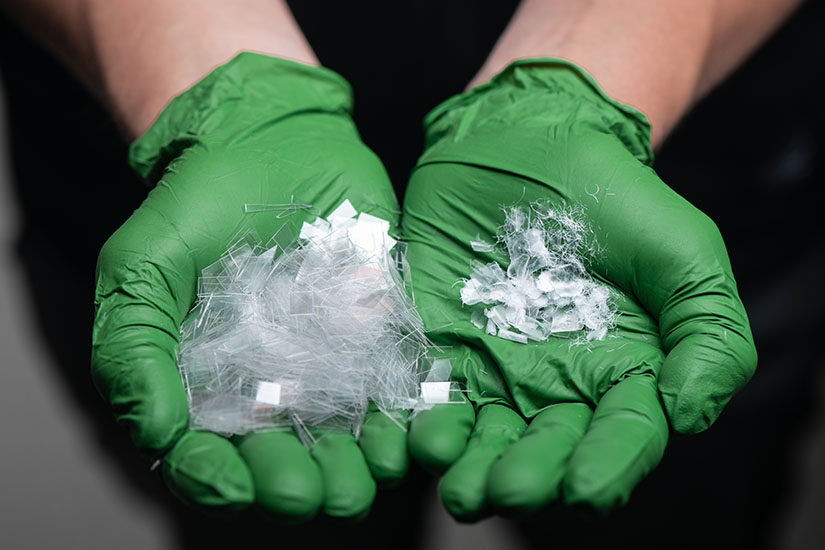Amazon Joins NREL-Led BOTTLE Consortium To Help Change the Way We Recycle

An estimated 5.7 billion metric tons of discarded plastic has never been recycled—more weight than food produced every year globally. Though a fraction of that plastic waste has been landfilled, much has escaped waste management, becoming a pollutant that can persist for centuries in forests, lakes, and oceans.
That hard reality is prompting the global community to rethink how plastic is created, managed, and recycled. A circular plastics economy—facilitated in part by chemical technologies designed to break apart and upcycle all kinds of plastics—could help lower greenhouse gas (GHG) emissions and save energy relative to virgin plastics manufacturing. That way, the world might reap the substantial benefits that plastics offer, while reducing environmental costs.
Adding weight to that effort is a new collaboration between Amazon and the National Renewable Energy Laboratory (NREL)-led BOTTLE™ Consortium. Amazon will leverage BOTTLE's primary research strategy—contributing research on plastic deconstruction, upcycling, and redesign—and implement solutions in company efforts of eliminating or reducing packaging waste.
According to Gregg Beckham, an NREL senior research fellow and CEO of BOTTLE, adding Amazon to the consortium's growing list of industry partners is a major step toward developing solutions to the world's most critical plastic pollution problems.
“Amazon is poised to catalyze new upcycling paradigms with direct exposure to billions of consumers,” he said. “Its size and scale allow it to influence the plastic supply chain in a holistic manner.”
Short for “Bio-Optimized Technologies to keep Thermoplastics out of Landfills and the Environment,” BOTTLE is a U.S. Department of Energy (DOE)-funded consortium that brings together an interdisciplinary team of experts from 10 partner institutions to meet the critical need for new technology on plastics recycling and upcycling. Two primary thrusts ground the collaborative effort:
- Development of chemical upcycling strategies for today's plastics
- Redesign of tomorrow's plastics to be recyclable by design.
In support of this strategy, much of the work with Amazon will focus on advancing chemical processes for deconstructing plastics commonly found in packaging, such as polyethylene and polyesters. By exploring a range of catalytic technologies, the team targets scalable strategies for breaking down plastic packaging into smaller chemical building blocks. These can then be used to synthesize new plastics or—better still—to create classes of higher-value replacements.
Circular Economy for Energy Materials
This research aligns with one of NREL's critical objectives.
Threaded throughout that research will be comprehensive analysis to understand environmental, technical, social, and economic merits of new technologies and processes.
“In partnership with BOTTLE, we plan to make significant progress in developing new technologies and materials that will lead to less material in landfills and more back into the circular economy,” said Alan Jacobsen, principal materials scientist at Amazon. “Science and innovation are at the heart of our sustainability work at Amazon, and we are committed to using our size and scale to reduce and eliminate our use of materials and find new ones that can be applied to our operations and other industries around the world.”
Supported by DOE's Bioenergy Technologies Office and Advanced Manufacturing Office, BOTTLE is transforming plastic pollution. Learn how to work with the consortium, and discover how NREL is fostering a circular economy for energy materials.
Last Updated May 28, 2025
